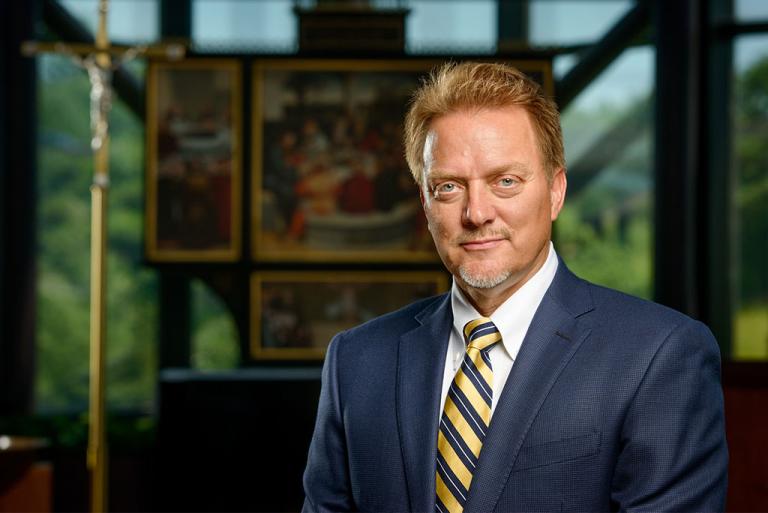As I was trying to think through the doctrine of the Two Kingdoms and the competing schools of conservatism, Anthony Sacramone alerted me to an interview he did with Rev. Dr. Gregory Seltz. The former Lutheran Hour speaker is the current head of the Lutheran Center for Religious Liberty. the voice of the LCMS in Washington, D.C.
The interview is from back in 2021 and was published at Religion & Liberty Online, with the perhaps surprising title Lutherans are on the front lines of the battle for religious liberty. Read it all, but here are a couple of responses from Dr. Seitz:
What are the biggest religious liberty issues facing churches today?
With the federalization of virtually every aspect of healthcare, the government is intricately woven into issues from the beginning of life to its end. The temptation of the government to stand against clear moral teachings that are fundamental to many Christians and religious people of the country is one thing, but the coercive capability of such an expansive intrusion into areas of conscience is another. We’ve seen that in the Obamacare mandates and more recently in the COVID-19 restrictions on the Church, virtually reclassifying it as a secondary institution. Such a reclassification stands in stark contrast to the constitutional protections of religious liberty enshrined in the First Amendment.
While those issues are troubling, the most pressing issue is the reclassification of gender identity as a protected class like race, sex (male/female), ethnicity, or religion. Differences of opinion are one thing, but the notion that the Church must change its teaching regarding marriage and the healthy, biblical directives for sexual expression within the marriage bond now stands not merely as a different understanding of sex, sexual practice, and intimacy—it may become “hate speech,” defining one side of the equation as constitutional and the other as not. We are seeing this already in Europe with the prosecution of Bishop Juhana Pohjola and Paivi Rasanen in Finland merely for publicly teaching that marriage is defined as the lifelong union of a man and woman and sex is part of the marriage bond. . . .
Lutherans have a reputation for political quietism, standing on the sidelines during the great social churnings, focusing strictly on gospel proclamation. Is that reputation deserved? If so, do you see yourself as trying to alter that image, opening up a space for Lutherans as Lutherans to enter the political arena?
I’m biased here, of course, but I think that the representation isn’t well deserved. Some would point to the German Lutheran state church and Hitler, but there were plenty of churches speaking out and even acting against the secular takeover of the state church and the state itself. Here in America, many of the foundational Supreme Court cases—Hosanna Tabor, Trinity Lutheran, and others—are the result of Lutheran churches standing up to government encroachment when the time is right. I think the label of “quietism” comes from a misunderstanding of our teaching of “Two Kingdoms.” Richard Niebuhr’s book Christ and Culture is a good example. There the Lutheran position is defined as Christ and culture “in tension” rather than in the proper differentiation of God the Father’s preserving work (through Caesar, through people’s vocations) and God’s unique saving work in Christ for all.
Differentiation does have a limited view of what “good” government can do, and that may be why we are not leading the charge on many of the political issues of the day. Such a view also supports a healthy limitation of what government “should do.” But that doesn’t imply nonaction.
Notice the difference between this and Christian nationalism. Dr. Seitz is indeed taking a strong position on the moral issues of our day, but he isn’t saying that Christians should rule. Rather, he is saying that the government must stay in its lane.
With the federalization of virtually every aspect of healthcare [and, we might add, virtually every other aspect of our lives], the government is intricately woven into issues from the beginning of life to its end.
The temptation of the government to stand against clear moral teachings that are fundamental to many Christians and religious people of the country is one thing, but the coercive capability of such an expansive intrusion into areas of conscience is another.
Differentiation does have a limited view of what “good” government can do, and that may be why we are not leading the charge on many of the political issues of the day. Such a view also supports a healthy limitation of what government “should do.” But that doesn’t imply nonaction.
Many of these problems and the way they impinge on religious liberty are due to the expansion of government into nearly every area of life and its coercive power to force Christians to comply with its moral dictates even when they violate Christian teaching.
To be sure, Christians believe that the government is responsible to follow the moral law, which applies to God’s temporal kingdom. This is why they oppose legalized abortion for everyone, not just Christians, an abdication of the government’s responsibility to protect its citizens, no matter how young. The other big cause of Dr. Seltz’s institute is to lobby on life issues. Christians have the right to persuade and influence by political and legal means, just as all citizens do.
The government should use its coercive power for good, but the church, as such, has no coercive power. It has power–the power of the Holy Spirit working through the Word to change hearts–but not power over the state.
This would seem to accord better with small government conservatism, rather than big government conservatism.
Photo: Rev. Dr. Gregory Seltz (LCMS/Erik M. Lunsford)

















